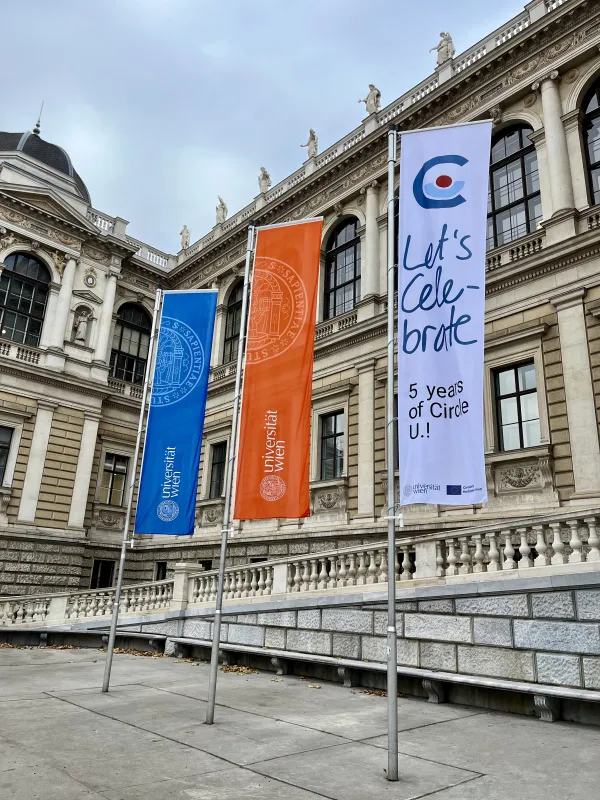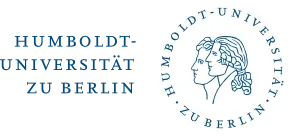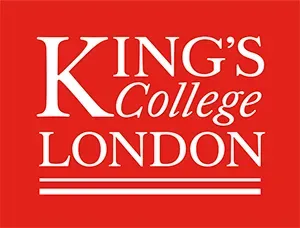In the Dean’s Corner, Eivind Engebretsen, Dean of the Open Campus, University of Oslo, informs you about the latest updates on the Open Campus, Circle U.’s digital gateway to educational offers for students.
A Collaborative European Campus for All
This platform allows any student from a Circle U. university – whether in Aarhus or Paris, Belgrade or Berlin – to enroll in courses at multiple partner institutions simultaneously. In the past academic year, we have seen a significant increase in offerings on the Open Campus, ranging from flagship summer schools to new bachelor modules on sustainability and the “Open Conversations” lecture series. By November 2025, the catalogue featured 44 joint courses with 19 more announced for Spring 2026 - and this growth is only accelerating.
Our long-term aim is for all of our 500,000+ students to find something in this catalogue that adds a European dimension to their education. In this way, international exposure becomes accessible even for those who cannot spend extended time abroad or are not mobile at all. By opening up inter-university learning to everyone, the Open Campus nurtures a culture of exchange and collaboration. Through this digital platform, students broaden their perspectives by engaging with peers from different countries, developing intercultural communication skills and a sense of global citizenship without leaving their home university. Stepping outside the confines of their home curriculum to explore diverse courses also challenges them to adapt to new academic environments, building their adaptability and intellectual curiosity—traits essential for future-ready graduates.
Innovative Pedagogy
A hallmark of the Open Campus is our enthusiasm for innovative pedagogical formats. Circle U. is integrating new ways of teaching and learning into the joint catalogue, from challenge-based activities like hackathons and design sprints to themed “sandpits” and incubator projects that tackle real-world problems. These hands-on experiences compel students to apply critical thinking and creative problem-solving to complex challenges, often working together in multidisciplinary teams. We are also embracing place-based learning, leveraging local contexts as “living laboratories” for education. One example is the Tenuta Lab in Pisa, which turns a confiscated estate into a hands-on sustainability project; in other community-engaged courses, entire cities or regions become the classroom. Such approaches strengthen students’ adaptability and resilience by pushing them to connect theory with practice in unfamiliar settings.
Equally exciting is the rise of student-driven education within Circle U. A shining example is the student-led summer school on climate action hosted by the University of Vienna in July 2025 — an initiative entirely organised by students for students through our Seed Funding scheme. These student-led efforts show how Open Campus empowers learners as partners in their education rather than as passive consumers. By supporting student-led lectures, challenge projects, and field courses, we cultivate a culture of active learning and inclusive collaboration. Students take ownership of their learning journey, an experience that builds confidence and instills habits of self-directed, lifelong learning.
Redefining Mobility and Inclusion in the 21st Century
Perhaps most importantly, the Open Campus is redefining what student mobility and inclusion mean in the 21st century. Traditional exchange programs reach only a limited few; by contrast, the Open Campus model—when scaled—can open international learning opportunities to hundreds of students who might otherwise never study abroad. Even a busy nursing student or a working parent can gain global experience by enrolling in a Circle U. online course or participating in a short challenge program, with no travel required. Students who cannot go abroad physically can still engage with international peers through virtual classrooms, cultivating a sense of global citizenship while honing their digital literacy as they navigate online collaborations.
This flexible approach represents a shift toward inclusive internationalisation, turning “mobility” into a menu of options rather than a binary choice. When students travel, it can be for focused, high-impact experiences, such as blended intensive programmes that maximise learning in a short time. By lowering barriers to participation, Open Campus democratises international education and embraces the principle of lifelong learning — enabling learners to continue developing their skills and knowledge regardless of their life circumstances.
A Vision of Open Education: Freedom, Openness, and Inclusion
The Open Campus demonstrates that openness in education is not just a lofty ideal but a practical framework already taking shape. Our vision for the future of open education is grounded in several core values that guide this initiative. Each of these foundational principles also underpins the 21st-century skills and mindsets we strive to cultivate in our students:
Academic Freedom
A campus without walls must be unwavering in its commitment to intellectual freedom. The ability to question and debate is essential for cultivating critical thinking. Our recent Open Conversation in Belgrade on academic freedom underscored that free expression and critical inquiry are the bedrock of our enterprise. As we design joint curricula, we ensure that even controversial ideas can be debated respectfully and that scholars can teach and research without fear. Circle U.’s commitment to academic freedom means empowering our community—students and staff alike—to challenge ideas and push boundaries. This freedom to explore is how knowledge advances and innovation thrives. Open Campus will continue to host conversations on academic freedom, democracy, and human rights, because these values are the oxygen of open education.
Open Science and Knowledge Sharing
The Open Campus thrives on the principle that knowledge multiplies when it is shared openly. In practice, this means encouraging open educational resources, cross-listing courses across institutions, and integrating research and teaching. Students in one country can learn from top experts in another through online classes, and research findings flow directly into multinational classrooms. This culture of open science enriches the learning experience: for example, students might analyze real data from a partner’s lab or contribute to a live research project as part of their coursework. Our Open Campus is becoming a sandbox for new ideas on how to democratize knowledge production, aligning with global open science goals. By embracing open science, we also teach our students the importance of collaboration and transparency in a global knowledge economy.
Inclusive Collaboration
Openness also means inclusiveness. A truly European Open Campus must welcome learners and educators from all backgrounds and leverage the full diversity of our alliance. We take this to heart by involving students at every step—from course design to evaluation—and by supporting bottom-up initiatives (such as student-led summer schools and lecture series) that amplify underrepresented voices. Inclusive collaboration is evident across all these efforts. Our ambition is also to co-create courses in multiple languages, tapping into our linguistic diversity to make learning more accessible. This commitment to inclusion not only expands access to education but also prepares students to thrive as global citizens in multicultural environments, fostering empathy and cross-cultural understanding.
Five years ago, this vision was just a bold idea; today it is a living reality. A student in 2025 can traverse a truly European campus without leaving their home university, and in doing so gain 21st-century skills and connections that will last a lifetime. As we look ahead, our aim is to scale this model even further — with more courses co-taught across borders, more joint programs, greater recognition of each other’s degrees, and an even wider community of learners engaged through open collaboration. There is tremendous energy in our alliance, and a shared sense that open education can drive societal progress. By grounding this openness in the core values of freedom, open science, and inclusivity, we ensure that it maintains its integrity and creates a lasting impact on the way we learn and grow.









